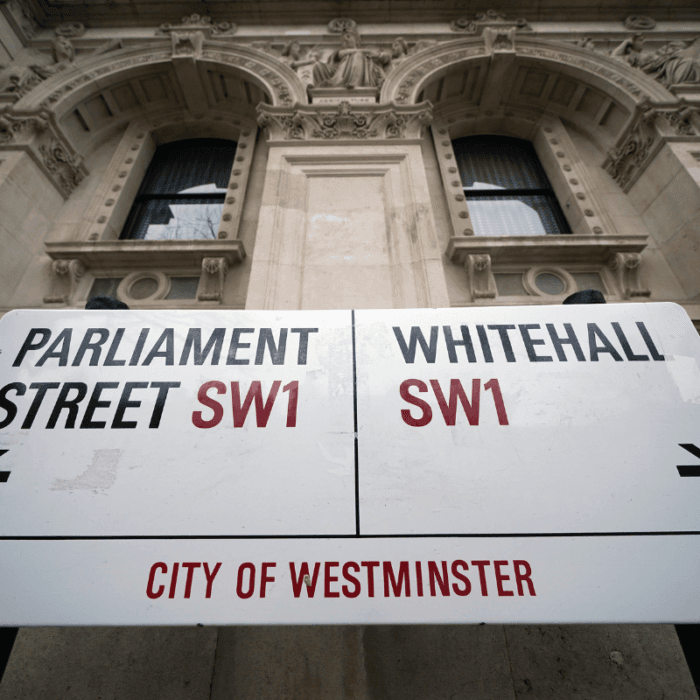The government will appeal against Monday’s ruling by a Belfast judge that the Illegal Migration Act 2023 should be “disapplied” in Northern Ireland, a Home Office minister has said.
Lord Sharpe of Epsom confirmed to peers on Wednesday that the government would “take all steps to defend its position, including through an appeal,” after Mr. Justice Humphreys ruled that parts of the act are incompatible with the post-Brexit Windsor Framework.
The parliamentary under-secretary told colleagues in the House of Lords: “We continue to believe that the policy is lawful, that our approach is compatible with international law, and specifically that the Illegal Migration Act proposals are compatible with Article Two of the Windsor Framework.
“The government will take all steps to defend its position, including through an appeal. We’ve consistently made clear that provisions in the Belfast-Good Friday Agreement, referred to in the Windsor Framework, were developed specifically against the background of Northern Ireland’s unique circumstances. They do not concern and should not be bought into the complex debates regarding illegal migration.”
The Windsor Framework includes conditions that preserve rights under the terms of Northern Ireland’s Good Friday Agreement. Mr. Justice Humphreys said on Monday that provisions of the Illegal Migration Act undermine those protections.
Ruling Won’t Affect Rwanda Plan
Lord Sharp said that the judgment would not affect plans to remove illegal immigrants with inadmissible asylum claims, confirming, “This judgment relates to the illegal migration act, and so it does not impact our operations or planning for Rwanda.”This position was established by Prime Minister Rishi Sunak, who had said on Monday that the judgment “changes nothing” about the government’s operational plans to send illegal immigrants to Rwanda this July “or the lawfulness of our Safety of Rwanda Act.”
“We continue to work to get regular flights off to Rwanda in the coming weeks and nothing will distract us from that or delivering to the timetable I set out. We must start the flights to stop the boats,” the prime minister said.
Mr. Justice Humphreys also declared on Monday that the act was “incompatible” with the European Convention on Human Rights (ECHR).
“If the Strasbourg Court make me choose between the ECHR and this country’s security, I will choose our country’s security every single time,” Mr. Sunak said.
The Illegal Migration Act provides powers for the government to detain and remove asylum seekers who illegally entered the UK. Paired with the Safety of Rwanda (Asylum and Immigration) Act, which became law on April 25, the Illegal Migration Act facilitates sending those asylum seekers to Rwanda.
Challenge From the Civil Servants’ Union
Earlier this month, the government was presented with another challenge to its Rwanda plan. On May 1, the FDA union submitted an application for a judicial review of the measures on grounds that implementing them could force staff to break the Civil Service Code.The trade union said that under the terms of the Safety of Rwanda Act, a minister could direct civil servants to ignore an order from the ECHR blocking a deportation. This would conflict with the Civil Service Code, which dictates that civil servants must act in accordance with the law, including international law.
A government spokesman said that the Home Office had already sought guidance on ethics on the issue of the Civil Service Code and had received advice that civil servants would be operating in accordance with the Code, including the obligation not to frustrate the implementation of policies.







